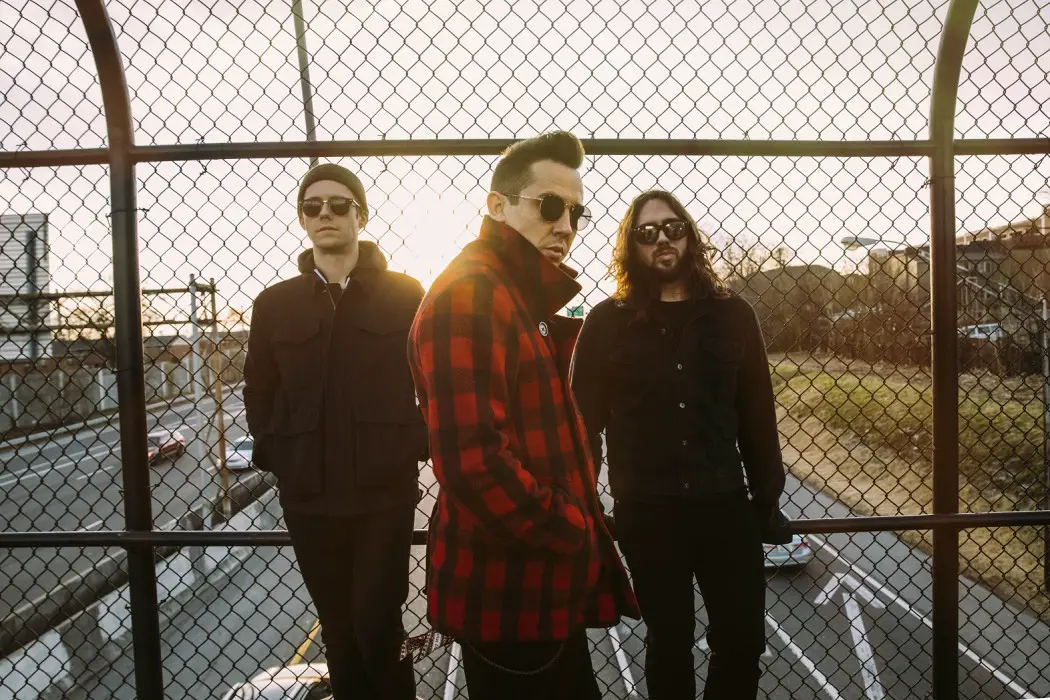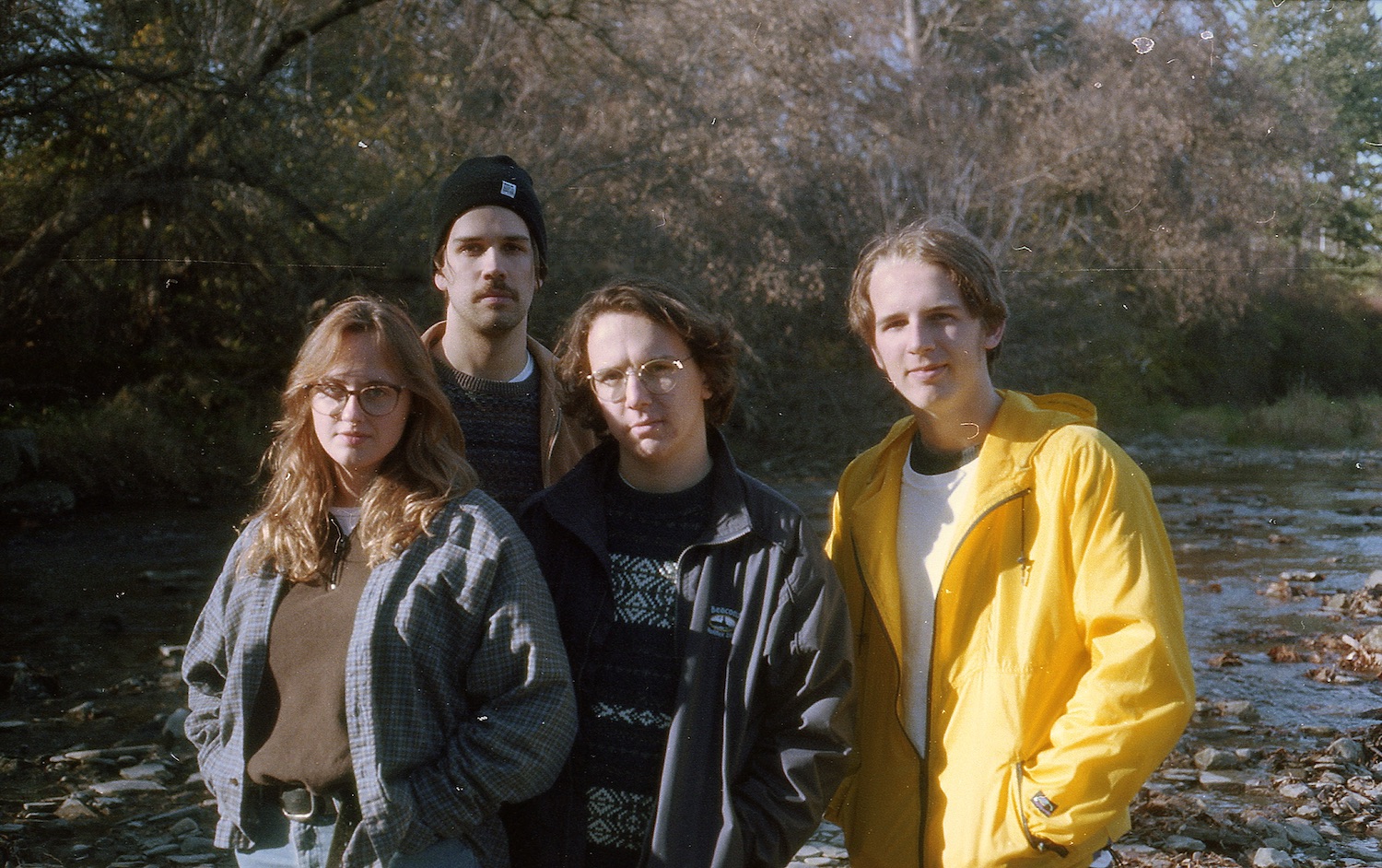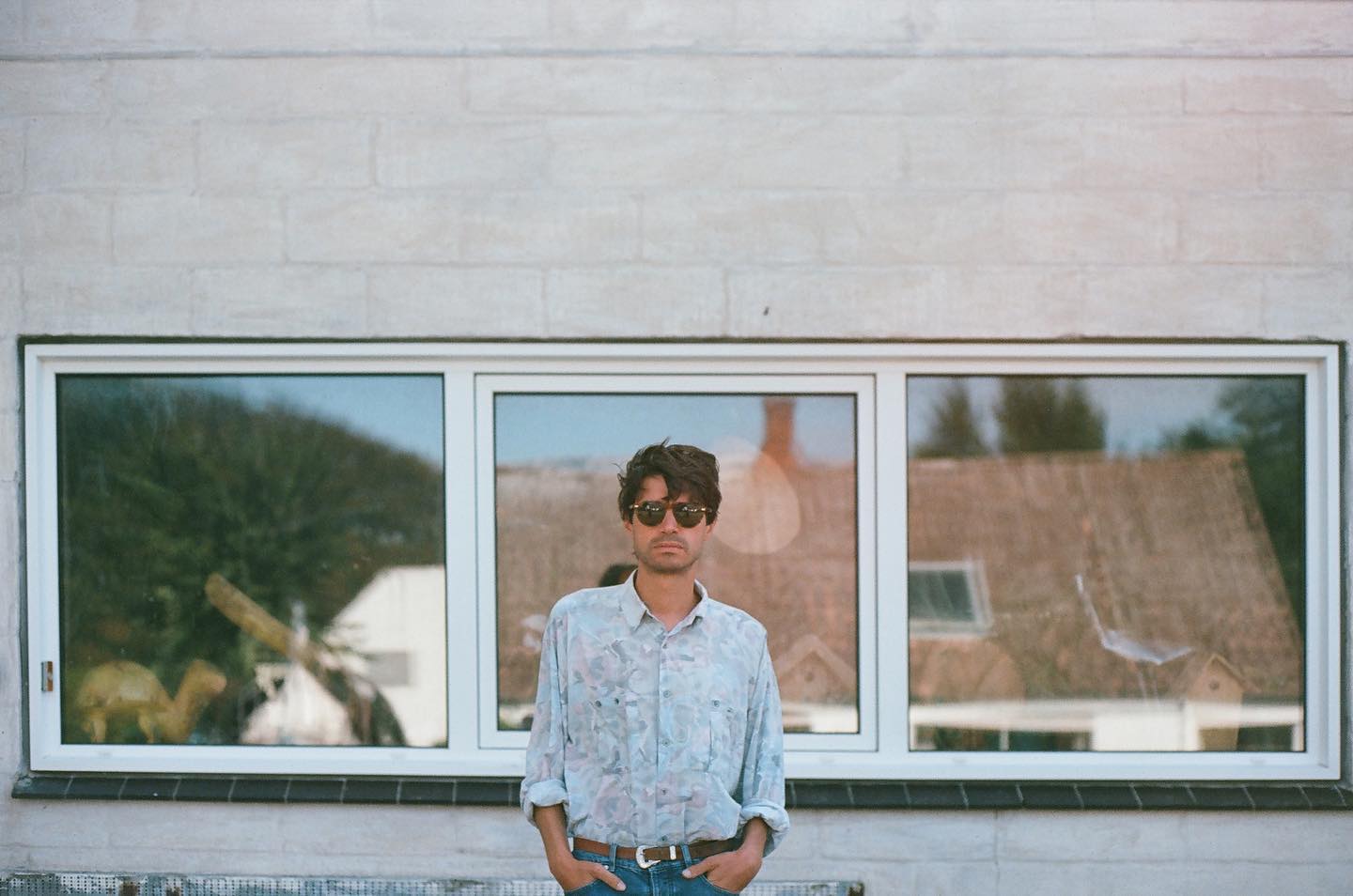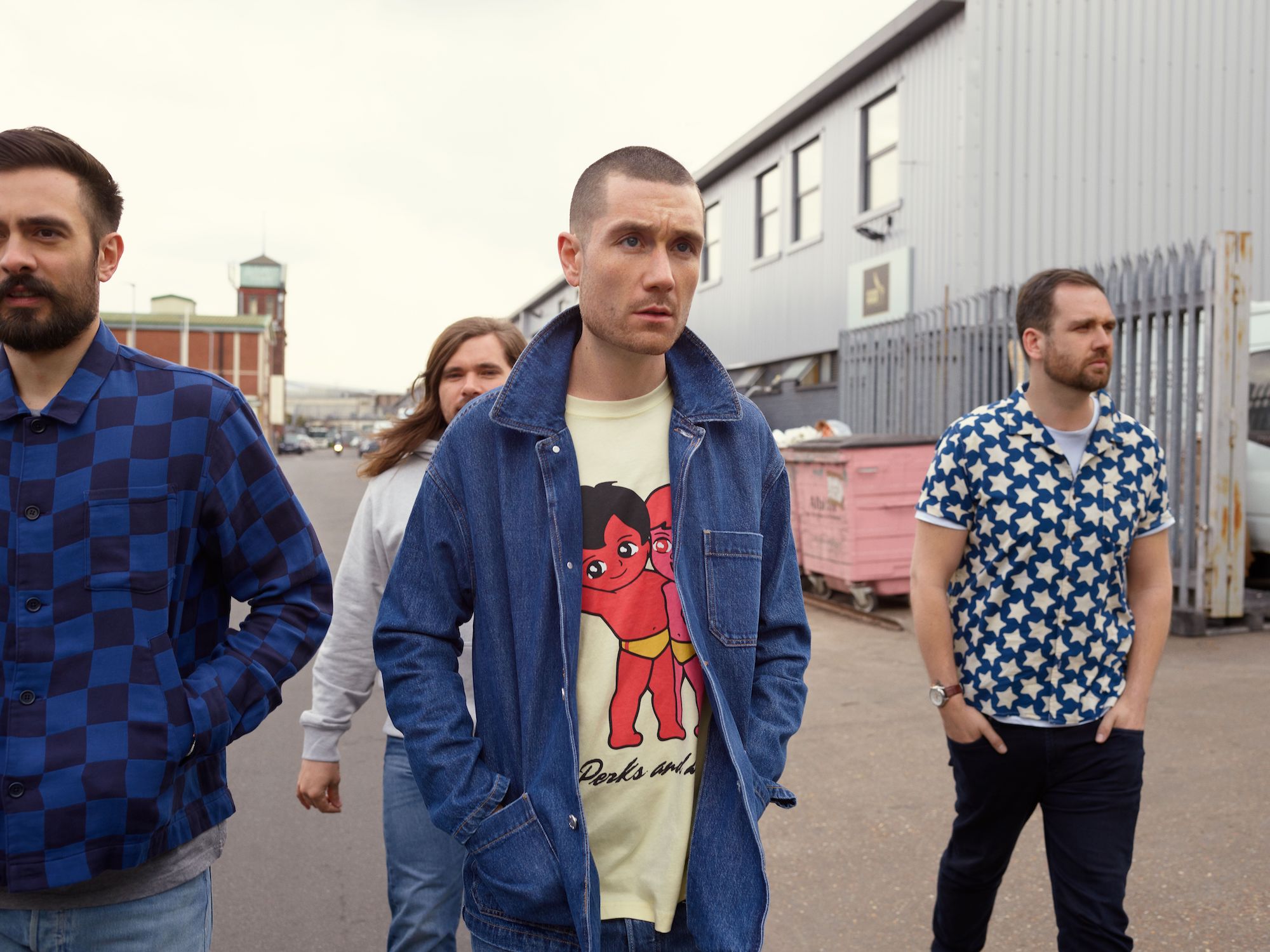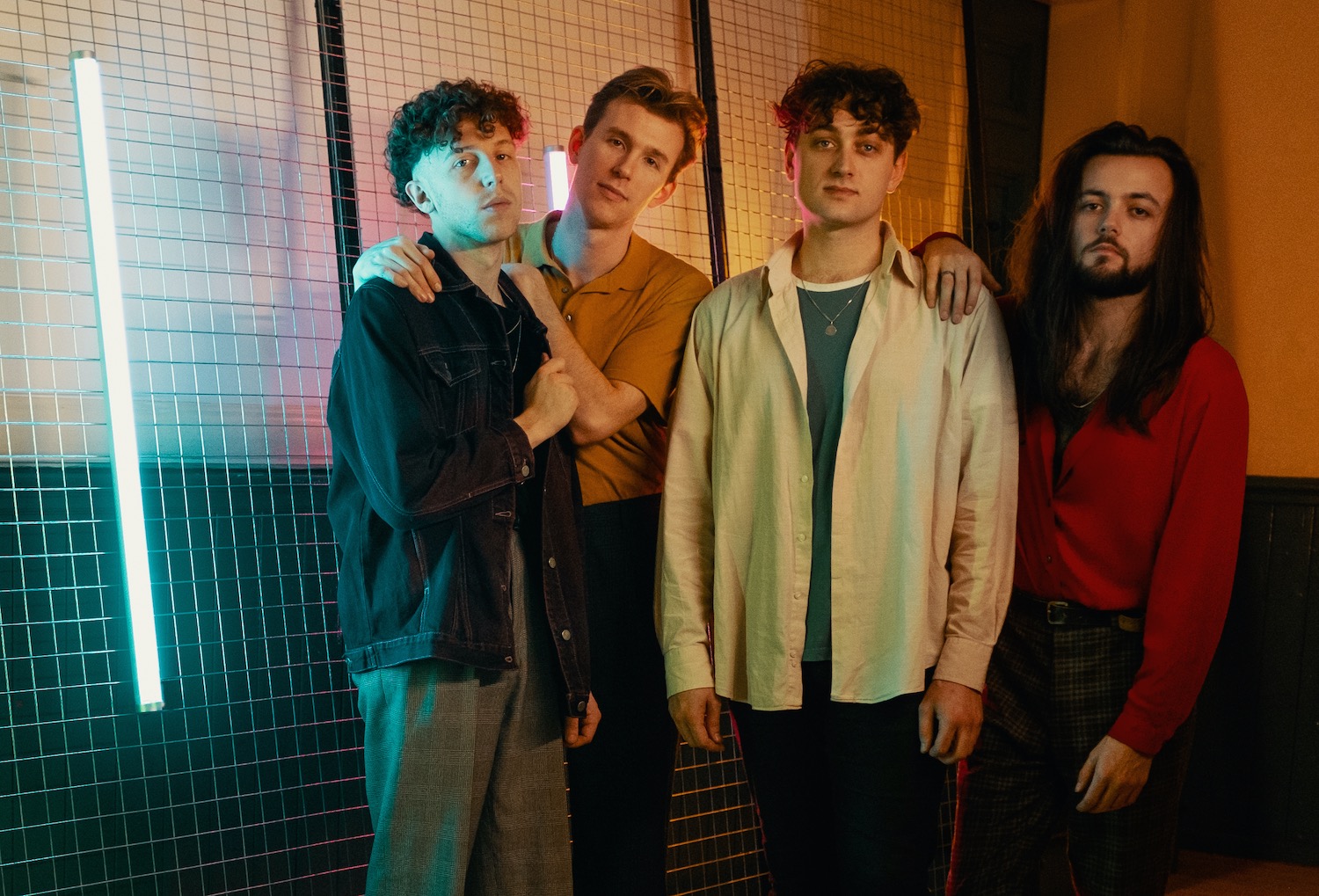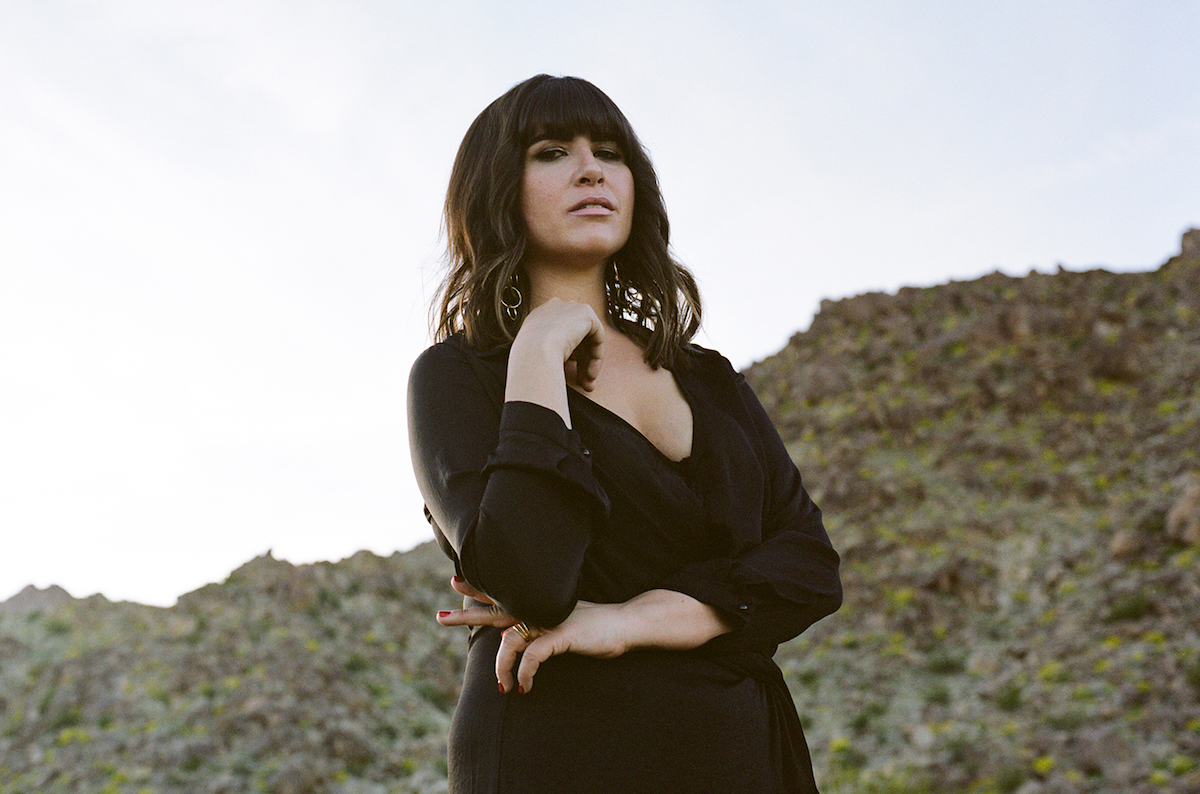Mona frontman Nick Brown discusses the Nashville garage rock band’s path to their refreshingly raw third album, Soldier On.
— —
I want to be a soundtrack to peoples’ lives.
If you had asked me, back in 2012, to name tomorrow’s rock stars, Mona would have been number one on my list. The Nashville garage rock band led by the tenacious Nick Brown have always had an excitingly raw, hyper-expressive quality to their music. Their self-titled debut album shot them out of the gate at a lightning-fast clip; that same year, they were opening for the likes of Kings of Leon and performing at some of the biggest festivals in the world.
Mona got a taste of what frontman Nick Brown describes as a “seat at the cool table,” yet no sooner had they sat down, than was the rug yanked out from under them. They never quite enjoyed the same mainstream success as that of their peers, but they’re in it for the long haul. “I have an insane amount of fight,” Brown tells Atwood Magazine. “The times where we’re seemingly doing nothing, I’m probably working harder.”
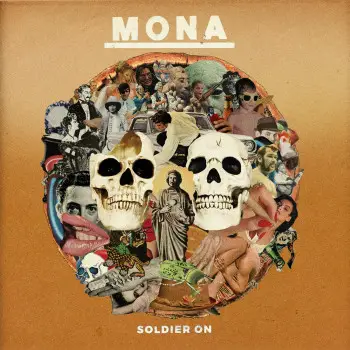
And if we know one thing to be true, it’s that hard work does pay off. In this case, the result is Mona’s frenetic and glowing third album. Released Friday, June 22 via Bright Antenna Records, the aptly-titled Soldier On finds the garage rockers in their prime, hitting hard and sounding better than ever.
What doesn’t kill you really does make you stronger. “I think part of soldiering on is, for the bad, weather the storm, but for the good, absorb the moment – because it’s going to pass as well,” Brown says. As catchy as it is deeply emotional, Soldier On is a testament not merely to Mona’s story of perseverance and passion, but also to the power and potency of the human spirit.
Supported by Jordan Young on bass and Justin Wilson on drums, Brown’s fiercely evocative voice continues to be one of the best in the business: With high howls, low growls and sweet moans (no pun intended), Brown pushes himself to the extremes, going farther than he’s ever gone before to unleash his inner demons and shine. Soldier On is about facing our problems and talking about our emotions; it seeks to inspire thoughtful conversation through high-octane anthems, brooding, driving power-ballads, and more.
Mona have cut their teeth and weathered all storms, and they’ve stayed true to themselves throughout. “I don’t care if we’re a big band, I don’t care if we’re a cool band,” Brown says. “I want to be the most human band, and I just want to write songs that I think can have actual applications to humans’ daily lives.”
The most human band has made an incredibly intense, human record: Mona’s Soldier On is full of high highs and low lows, bringing us deeper into our psyches and closer to ourselves. If you ask me today to name tomorrow’s rock stars, Mona would still be at the top of my list. Their third album Soldier On is out now on Bright Antenna Records. Dive deeper into all aspects of Monathe band through our exclusive feature interview with Nick Brown!
Listen: Soldier On – Mona
A CONVERSATION WITH MONA
Atwood Magazine: I can't believe I'm talking to the leader of Mona the band. Wow!
Nick Brown: Well thanks for taking the time… I’m down to talking to humans. I’ll put myself in that category most of the time! (laughs)
I feel you on that – well, I respect and appreciate it a lot. I first discovered Mona years back from Smoke & Jackal, your collaboration with Kings of Leon’s Jared Followill.
Brown: I just listened to a couple of those songs today for the first time in… Jeez, I don’t know how long! But I was like trippin’ down memory lane about how much fun we had making that, and how rushed it was – it’s kind of a hilarious project. There was like a lot of just fuck it involved, but there’s a lot of nice little moments in there that I’m pretty proud of.
That was sort of what turned me onto Mona, and then from there I discovered your debut album - which turned me on to “Lean into the Fall,” which is still one of my favorite songs of yours. That record, to me, goes down as one of the garage rock greats.
Brown: Aw, I appreciate that. It was recorded literally in a garage, so it’s pretty accurate! (laughs)
That's perfect, it all works out! I know it’s been quite the journey since then, so here we find ourselves in 2018. First of all I just kind of want to start with Mona’s story: From my perception, it’s been off and on, off and on, but I feel like the perception publicly is always different than the band's perspective. In your words, what's sort of been Mona’s path?
Brown: I mean, the overall thing about Mona and why we even exist is because I have an insane amount of fight, and that’s really it! So the times where we’re seemingly doing nothing, I’m probably working harder. As we all know, like music now – it’s different! Everything, you know, switched, and we were at a very weird time in history when we emerged. If we could have just emerged a handful of years, earlier we’d probably be sitting way prettier – or any other time in history! I mean from the ‘60s up ‘til like 2008 even, I could be talking to you from a boat! Like who fucking knows.
But I think there’s always just been a fight. And I think that that’s not even like a testament to me. I think it’s a testament to anybody that just keeps going. I mean obviously this new album is called Soldier On, but that’s kind of been a reoccurring theme in my life as an artist and as a musician, is you have to keep going.
There’s a million examples in history, whether it’s painters or poets. A lot of them, you know, the classic cliché – they’re not even famous ‘til after they’re dead, and there’s all this hope and longing in expression. So in that, you know it’s nuts! We never asked for a seat at the cool table. You know? And it seems like we were kind of given one for maybe a shorter period of time than you would want. In some ways it’s almost better to not get a seat at all, than to have it for three years and then kind of get sucked into a lot of major label classic clichés.
So it’s been, as a human, higher highs than most people I know, and lower lows than most people I know. As an artist, it hasn’t really changed: I nonstop write; I nonstop record; and I always have. You know, when I was homeless when I first moved to Nashville, I had a four track little cassette thing that ran on batteries, and I was tracking songs and writing. Now that I have like a decent little place to record, it’s the same thing. So to me, the process has never changed. Just keep going. Now as a human the emotions go all over the place, but I think the work ethic – which is probably something I learned from my working class, blue collar family – is you just keep going.
So in that, you know the last recent years, you switch, and real life hits! Not everybody can be U2, where it’s the same four guys for a hundred years, and not everybody can be Kings of Leon, where you’re all related so you can’t really get away from each other. So when real life hits, the highs and lows, people starting families and people need to pay their bills, you deal with a lot of variables. I think the one thing that Mona has consistently done is…
Like, I think everyone in the band is also a fan of believing in the type of band that we are – I’ve always said, I don’t care if we’re a big band, I don’t care if we’re a cool band. I want to be the most human band, and I just want to write songs that I think can have actual applications to humans’ daily lives. Every day there’s tragedy, there’s joy, there’s funerals, there’s weddings. And the greats, like The Beatles, have a song for every emotion. I think we’re nowhere near that, but that’s where our attempt is: I want to be a soundtrack to peoples’ lives. Even if it’s in the background, you know? Maybe we’ll never get the massive hits or the accolades. But I think that if we’re honest and create consistent work, it’ll find the humans that it needs to find.
I want to be a soundtrack to peoples’ lives.
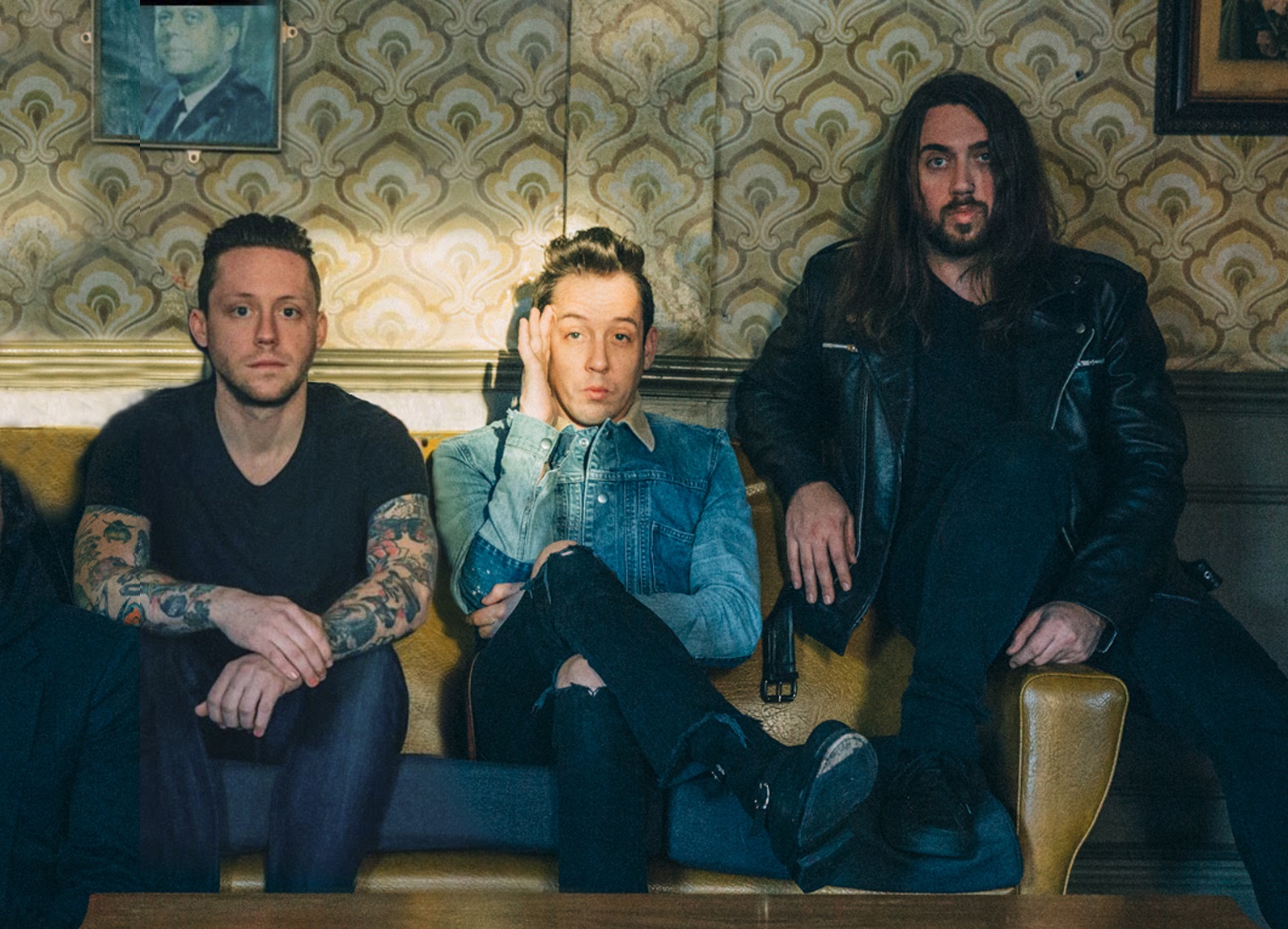
At this point, is Mona your project?
Brown: Not to get deep, but if someone is there for a moment, and that moment birthed a song or created something of substance, and then that person feels like they need to move on, then that’s the same power as being in a band for ten years. As long as people are coming, and they’re giving, and they’re passionate about it. It’s like a relationship: Do you want to be in it because like, oh I’ve been in it!? Or do you want to be in it, because you want to be in it!? No one’s ever been kicked out of Mona. There’s not like some dictatorship. You’re in this as long as you want to be in this and if a page turns, I’m rooting for you!
I love that attitude!
Brown: Everyone’s got different goals. I grew up wanting to be… You know, some of our early interviews were ridiculous, where it’s like, Has anybody played a show on the moon? Then I want to do that! Where it’s just ambition, ambition, ambition. And where I come from, the Midwest – the land of Walmart, Taco Bell, and big, kind of cheesy ideas – so that’s what I knew to chase, was the brass ring.
As an artist when you developed and you kind of realized those are the things that you actually don’t believe in and want nothing to do with. So there’s a revolving door of goals, and you know when you’re a teenager and your girlfriend is listening to *NSYNC, or when you first discovered whiskey and you’re crying Bob Dylan – those are two different emotions, but they’re also all just music. You know, we’ve all danced around in our socks to Michael Jackson. And if you haven’t teared up to Mazzy Star, then I question your humanity. There is an ever-revolving door to the emotions that we need as humans. So there should be an ever-revolving door to the music that we allow into our lives.
And you Soldier On.
Brown: Exactly. At the end of the day, if there’s a storm, or adversity, or controversy, or pain, and you are standing against it, then all that is left to do is, continue to stand. There’s not like a change in behavior: There’s just holding on to a moment and not letting the moment crumble. We all want and I think that’s with not just negative; I don’t want to sound like, when life gets tough, you have to hold on, you have to soldier on. I think you have to soldier on in times of greatness and in times of high points. We’ve been in very high places on very massive stages, rubbing shoulders with very famous friends. Name drop after name drop, experience after experience. And if you’re not in that mentality to soldier on in an endearing, enduring state of mind, then it’s just another day! Like you’re basically just walking through a shopping mall, high. It doesn’t matter – it’s all just static, if you’re not in it. I think part of soldiering on is, for the bad, weather the storm, but for the good, absorb the moment – because it’s going to pass as well.
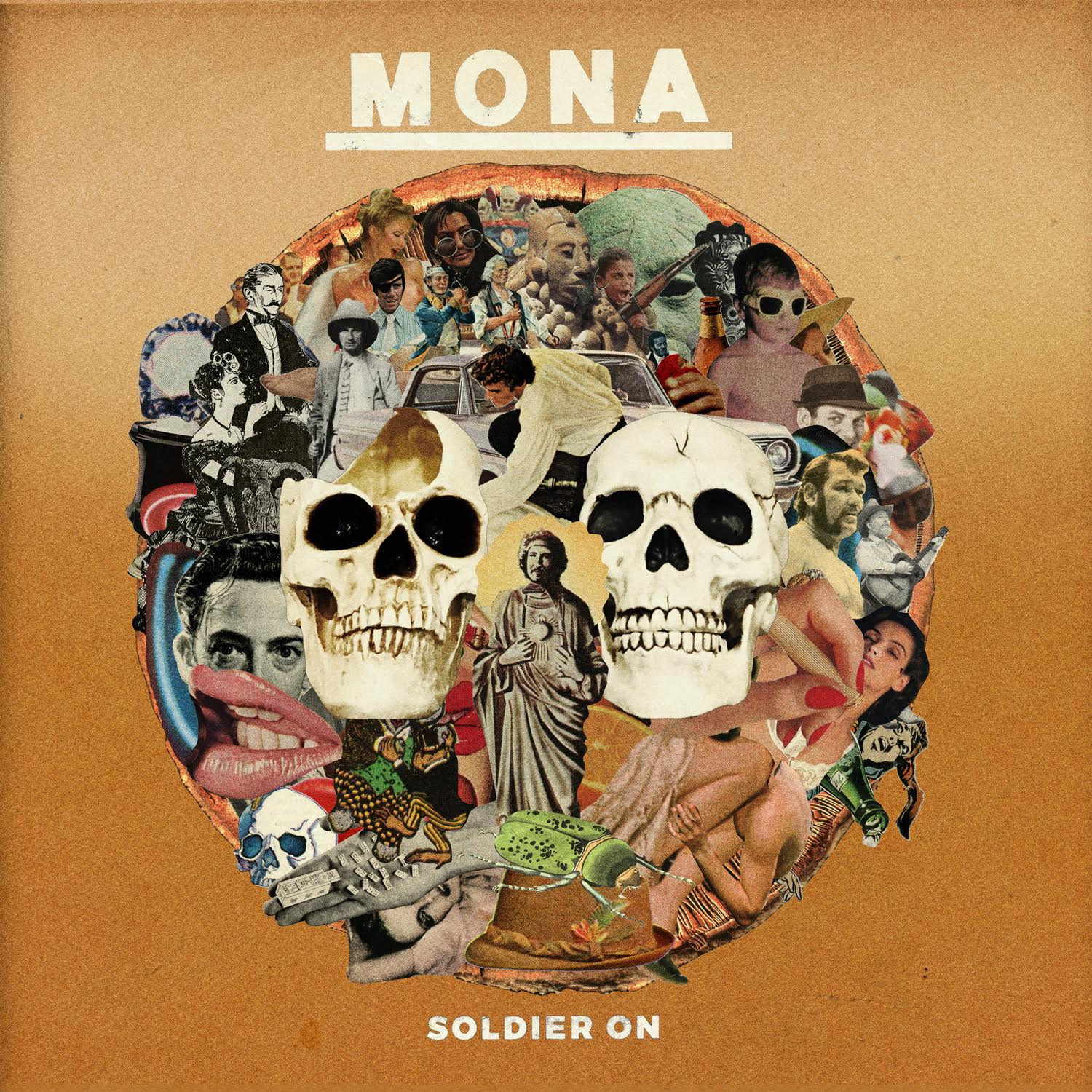
When I was in high school listening to Mona's record, I thought you guys could be the biggest band in the world. And to this day, you are up there for me with Kings of Leon, who at the time were riding that high - they were one of the biggest bands in the country. But you're totally right, and I love that mentality: Because it's not about the end goal, it's not about waiting for that thing that may or may not happen; it's about loving being in a band or making music, or sharing that with the world every day.
Brown: It’s about not defining things for ourselves. I don’t know what I am to people. I don’t know if I am that has been, never was. I don’t know if am the singer that makes people feel. I never know how to define anything that I’m doing. So I’ve got to remove myself from it. I’ve had Robert Plant and Adele tell me I’m one of their favorite male vocalists, and I don’t really know how to process that. I’ve also been told that my voice is too this or too that, and I’ve missed the target on whatever the cool table is singing. But you can’t listen to the good, you can’t listen to the bad. At the end of the day, who’s a bigger band and who is still alive: U2 or Joy Division?
Now, what Joy Division did to and for music, U2 cannot compete with. I’m not saying one is higher or lower, but they are different impacts. But I think it’s hilarious how every indie kid in the world has a Joy Division t-shirt, and they all now fucking hate U2, where without Joy Division, there wouldn’t be a U2… Everyone loves certain things that think they hate, and the stuff that you’re actually into, that you are kind of defining as “cool” or “not cool”… Are you looking at what it did in history, or are you just looking at like, who wore the t-shirt on Instagram? So now you have a Clash t-shirt, but you don’t even know one song.
Taking it away from music, and doing it with art… the classic painters. Most of these people never got their accolades, and that doesn’t take away from their greatness. I think you have different struggles with people, whether it’s Brian Wilson or XTC, or Ian Curtis, people who, I don’t want their life! I don’t want to be in their head. If that’s what cool is, I don’t want it! I want to be a healthy human being and a healthy artist. But I don’t want to be the corporate version of U2 or Nickelback… who undeniably are amazing businesspeople and amazingly talented. I don’t want to be anywhere near either side, so I think an artist has one responsibility and that’s just to be honest. And that may change tomorrow, but in the moment you just have to pull the trigger, suffer the consequences, and if you miss, well that was you missing, and own it and go to the next moment.
I’ve had Robert Plant and Adele tell me I’m one of their favorite male vocalists, and I don’t really know how to process that.
Is this a mentality you've had for a long time, or is this something you've struggled to attain?
Nick Brown: I grew up in the church, so I saw a lot of… People talk about how the music industry is so intense, unless you want to get into politics or religion. That’s what I grew up in, was everyone in my church, so the music industry is not that different to me, of people getting things that maybe they don’t deserve, and other people that do deserve it never being noticed. You have evil people building multibillion dollar organizations in the name of God, and the people that are actually the salt of the Earth are getting walked on. So it’s very similar in a lot of ways. You kind of have to take away your ego, which is entirely psychotic, because to be a musician you have to have an ego.
It’s pretty narcissistic to think that making noise with things and shit that comes out of your mouth matters. So there’s ego, period, just in doing it right. I think people can either be great, or get off. It’s kind of like a band aid mentality, because it doesn’t fix the overall problem, but it does help to get through each project.
It’s pretty narcissistic to think that making noise with things and shit that comes out of your mouth matters.
I really appreciate that, because as a fan I always got down about Mona - wanting to see more. So, transitioning to the music of Soldier On. I feel like I really have a good sense for the mentality of where the record came from. One of the things I love about this record is its intense energy from start to finish. Was there a conscious effort to keep the hype going like that?
Brown: No, not conscious at all. I think I am, as a human, intense – way more eccentric than like the white T-shirt in a leather jacket. When we started, I wore the same thing every day and it was to keep me from seeming too weird. Like, this is the uniform – because my brain wants to write, like, a reggae song the next day. I might go all over the place. I’m obsessed with so many different styles of music, that you have to kind of focus to be a character at times.
But it’s not conscious for the passion; I think I just kind of have a mentality of, If I don’t feel it, it’s not real – which is hilarious, because sometimes that’s such a, as much as “emo” can get annoying, that’s such an emo state of mind. So I think it’s just one of those things where I like potency. You know? I don’t want to sip watered-down beer. Give me a shot of whiskey: I want it to hit my bloodstream in like 5 minutes, and I want to feel something. I’m like that with drinking, I’m like that with sex and relationships, I’m like that with friendship. If I’m your friend, we’re talking about the shit that nobody wants to talk about: The good stuff, the hard stuff – I just kind of have to be in life, and I have to feel it. So that part is easy for me, because if anything, we’re usually like, toning it down. The passion is never really the thing that is hard for me to work up.
You open the record with the super heavy “Out of Place.” How does this song set the scene for the album to come?
Brown: What’s kind of funny about that song is that it’s a very old song. It’s one of the first songs I ever wrote, ever like in life. I think that’s why, you know, it is literally out of place. I think for me kind of calling to an old idea like that to start the newest project that we were working on was a good emotional, artistic reset. That was still me, and this is still me, and this is honest. It was a good gauge. You’ve always been seeking, and you’ve always been searching. Music is for humans, and what are humans doing? They’re seeking, they’re searching — this is a good thermometer or thermostat of where we’re going on this project.
It feels like a callback; in fact, so does this entire record for me. I mentioned that your first album was my favorite album. The songs on there felt so raw and emotional - and I feel like, in a similar fashion, this new record has that same kind of energy. It feels refreshed - like some sort of a spark is really there!
Brown: It’s exciting, because the completion of this, I feel like, was us ripping off a scab. I feel like this album was ripping off the scab and I think now, even the stuff that we’re going to continue to work on – I it’s funny because even as a band, we’ve talked about how ending this and what we’re working on even currently felt like the beginning. Similar feelings of that magic of things, like the great unknown as far as an adventure!
And I think with [our second album] Torches and Pitchforks, there’s so much great songwriting that was unrealized because we had a gun to our head! I do think it wasn’t fully realized, and I think that musically, I was very aware that things were shifting. I was very aware of Foster the People and Phoenix; I was already aware that Kings of Leon as the great rock band was not the next thing you know that’s with Danger Mouse and The Black Keys. This is like pre-The 1975, pre-Cage the Elephant being the presence that they are now. I was well aware of it, and you had the classic cliché of a major label wanting to chase the past as opposed to embracing the future. We didn’t really have a lot of say on where that went, whereas with this, we’re in a situation where we got to kind of go, “This is kind of where we’re going.” And for Mona, for the first song on the record, to hear an 808 start the whole thing off, it’s a very sarcastic tongue-in-cheek middle finger in a lot of ways it’s like, “We’ve never been afraid of this.”
That’s like, a very specific, legitimate drum machine: Yeah, we’re going to actually do a pretty heavy rock song, but with a nod to rock and to like, we saw all this coming years ago – where it’s embracing both worlds. And that affects every song on this record. There’s a lot more embracing of technology and fake sounds than those first two albums.
You say “fake sounds.”
Brown: I get into arguments with people sometimes. I sat on a plane next to Justin Vernon… we were on two flights coincidentally, and at the time he was in the studio with Kanye. We’re sitting there talking about music, and I’m like, “What about The Clash, man?” I go back to these purist things; I want to be either like Elvis, Dylan, The Clash, or you’re not rock n roll! You can be music, but if I’m going to be pop, I want to be Michael Jackson or Bowie. So I had very ignorant views towards the way I was categorizing things. He’s like, “No, I get it – the idea of rock n roll is basically four instruments: guitar bass, drums, and keys! And he goes, “But in a hundred years if someone heard a song, would they give a fuck if that snare was real?” And I just went, “God damn it.” So it kind of changed. There’s a lot of layers and a lot of just what I call “fake shit” that is just as beautiful as real shit. At the end of the day, are you serving some antiquated idea, or are you serving the song?
Were the past five years necessary for this album to come to fruition?
Brown: I got annoyed by the whole game, so it’s not just the label thing – it’s the industry. It’s the abuse that musicians and artist have to go through. Not everybody can get to the point where you’re Lady Gaga and you’re doing a documentary, and you’re allowed to cry while you’re getting massaged because your life is so hard. I can guarantee you any band that has a decent-sized deal at all, that has been able to tour any kind of pace, has been in her shoes and quite frankly worse! Everybody does it because the sound of like an E chord and you singing at the top of your lungs makes you feel alive. I was in it to where we had signed a big deal. People knew about us. You’re hanging out with models and your heroes, and you go, “Oh shit – this is not anything that I want to be a part of.” So now what do I do? I was on the biggest label in the world – Universal – and with all this pressure, you get disillusioned. It’s kind of that whole.. When Bono walks off the stage at the end of the Joshua Tree tour and says, “We got to dream it all up again.”
I think another way to say that is like, I had to fall in love again. I didn’t like music. Music was a cheating bitch. It wasn’t a lover; it was someone who betrayed you and hurt you, not someone who embraced you. Artistically, you had to get over being a baby… If you’re an American, you have it easier than most of the world. So like, you’re writing songs: What do you need to say? There’s a big kind of reprogramming that had to be done. To artistically have things of substance that you believe, you have to have four human beings believing in them! I can’t be like, go vote, and my drummer being like, “No don’t go vote,” and you last in the same band for that long. You have to find everyone kind of drinking the same kool aid.
You’re making a poison, which is basically what drugs and alcohol are, and what we all love in moderation. And that’s what music is. In some ways, it’s a provoking poison. Done wrong, it’s just bad for the world. Done right, it’s Bob Marley. It’s another rambling answer I guess, but I think that takes time, you know? Wine is not Miller Lite.
I really appreciate somebody who's been around long enough to see through the bullshit and at the same time seems like he has a thirst for keeping going, despite all that.
Brown: I don’t really care what the song is about! For me, I’m just curious. I’m not afraid – I’m certainly not afraid of failure. And I’ve had enough to not be afraid of success. I want to be a great artist, and I think that we have a lot of potential left. I’ve also learned in this ride that I want to be a great human, and sometimes those things don’t line up. There’s a lot of mean people in music, and there’s a lot of mentally unstable people in music. At the end of the day I want to be a good friend a good person on the street, before I want to be rich and famous and hailed as a genius. I think some of it’s silly. I mean, that’s why we’ve always had the motto, “Dead serious. Just kidding.” That’s actually what I wanted the title of the first album to be, and Universal wouldn’t let me. They said it was too egotistical, too confusing, what are you saying… Well, “dead serious” is: This could change your life. Listen to this,” and “Just Kidding” is: It’s a fucking song and I’m a nobody; who cares?! Don’t buy the record. But when it’s right, it’s right. And I’m not the judge for that. I think the listener is.
Speaking of experiences with success, Mona, got a second wind - maybe a third wind? – with “Kiss Like a Woman.” Why do you think people took to it as much as they did?
Brown: I think people with real hearts and minds, once they saw the message of the song… Because people didn’t know how to take it when they just read the song. “Lean into the Fall,” from our debut album, I got a lot of shit for that line, “Hope she clean, hope she cooks.” I was like, is it chauvinist of me to say I need you? It’s acknowledging my weaknesses. It’s not putting you in a box. Don’t assume!
And so I think with this song, “Kiss Like a Woman,” it’s basically a CK1 ad from the ‘90s. And I think once the video kind of manifested that, where you could visually see a message of acceptance and three different walks of life that are all kind of equal, I think that caught on. Ultimately music when it’s done right is bigger ideas than the people making it. I think it was very obvious that we did an idea that got us out of the way, and let people see a bigger message. And I think it was probably refreshing to some people to see a bunch of straight white dudes from the Midwest and south addressing issues that aren’t just like whiskey and motorcycles. So I think it was good in that way as well. But yeah it was great. That was just a great collaboration to be a part of people from all different walks of life and kind of saying the same thing.
I think Soldier On touches into the depth that our conversation is also reaching. When I listen to it, I think there is a maturity behind the music - whether or not the song is just about sex - that is something that's relatable and also palatable.
Brown: Yeah, well you’ve always got a chocolate cover your vitamins. I think the bridge on “Kiss Like a Woman” – calm down and stay proud and that’s the best way you’re ever going to live. That’s not about fucking. (laughs) “You’re soaking wet, it’s easy to see” could be very tongue in cheek, but there’s messages in there. I’m not coming up in the ‘60s. Bob Dylan can’t even write a Bob Dylan song now, that would affect society in the way that it did. There’s timing, so I think we try to get as much in there, but we still also don’t want to be completely erased from pop culture or relevancy. I can’t do some obscure thing. I think accessibility is a good word, I think positivity and substance is a good word, but a lot of music that’s being made and listened to is to escape and retreat from emotions and problems. We want to have is something that’s just as entertaining, but maybe they are about facing them or maybe they’re about talking about them. Whatever your cause is – from PETA to Black Lives Matter, on down the line. What is your conversation? What are soldiering on? What are you facing?
That’s the point. It’s not that we’re all dealing with the same shit, it’s that we’re all dealing with shit. I think it’s having compassion and awareness that everyone is going through something, and to kind of go about your normal day recognizing that.
When you can’t control certain outcomes, art is bred out of necessity.
Brown: In any given situation, the best revenge is to live well. Now is the time that we have to start looking past parties and start looking past sexual preference and start looking past colors, and going to the deeper conversation. If we’re going to continue to fight left and right, then this culture always stay the same no matter who’s in office. We have to start talking about human issues. And I think the pressure should not be, oh the stupid Republicans or the stupid Democrats. It’s, “These are stupid ideas that hurt real people.” That’s the conversation, because I’m not wearing a Yankees jersey or a Red Sox jersey. I’m taking the jersey off. Those are the issues that are important to me – the human ones. I don’t care about the brand of politics or the brand of religion or the brand of sex. That’s why I hate genres and hate things being all, what’s the new stuff sound like? It’s noise like everything else! It’s static, hopefully with some truth in there. If isn’t then fuck it, I’ll try again next time. But we’re on a spinning rock in the middle of a double helix of oblivion. We all know nothing. Put a little effort into fucking loving the person in the same room as you. If you can’t do that, Jesus Christ, there’s no point in what I do.
“Kiss Like a Woman” is not the only song that comes from the heart and speaks to greater issues and greater problems. I feel like there's a good amount about mental health and making peace with your demons. “Losing Time” comes right after a “Kiss Like a Woman” and is so pained, it just feels like the world is closing in on you. What's going on there?
Brown: I mean, I feel like that every day. And I feel victorious and invincible every day I think that’s the great balance of human emotions is that I feel like we’re always all of it. I think that one’s to kind of control your day and control your mood and your influence on the people around you, is acknowledging your personality – the good and bad. Part of “Losing Time” is acknowledging frailty, but wanting to enjoy the moment – stay a little longer. Like, just draw the shade – there’s always going to be the day out there. It come off a little bit more melancholy than intended, but honestly like I started out feeling like a Sade song to me! So to me, it was kind of like this love song of time actually being a physical object:
everything split down the middle
Even in my mind
but I know somewhere
I left some time
It’s like, it’s something that you should be taking care of. It’s not supposed to be sad, but it is – it’s a little bit aware, I think. It’s that kind of feeling of just being aware, no matter how weird your state of mind is.
“Don’t Let Go” is another one of my favorite Mona moments. I think we're both suckers for those big emotional upheavals, and the romantic in me loves the metaphor combining innuendo with that deeper, passionate connection.
Brown: The second verse. Like. “her eyes are glazed, her belly’s itching,” and all that stuff. I’ve never, even to the band, and people in my life now, talked about what that is, but it’s imagery of my childhood first girlfriend, when she would get tired. You sit there and you’re like scratching, your eyes are glazed. It’s like you’re watching a movie and the other person is falling asleep, but it sounds very kind of innuendo, but it’s really about not having sex: Being this weird little naïve, young, thinking you’re in love, and then what’s supposed to go down in these situations isn’t. I love dualism and I love the balance in-between there. I love the world as the greatest place, and it’s all collapsing and falling in on me. I love that. Being an intense person, you don’t really want to land, ever! It’s not even about mental stability or standing for something. Working out too much can be detrimental. Drinking too much water can kill you. When stuff gets extreme, it’s never good. So it’s always just about balancing it out.
You really have to notice the small things in life and think about them very hard to create that. Maybe I'm being naïve talking to a guy in a rock band about this, but that's poetry.
Brown: That’s where the clichés become a battle in and of itself. I mean, Jim Morrison probably considered himself a poet, and look at the weird cliché that is. It’s these weird things where I think that is when we are alive. The agenda-driven living of checking the boxes. Do I have this job? check. Am I making this money? check. Do I have a partner? check. Whatever the fucking thing, whatever you’re doing, we have such an agenda-driven life, that I think that’s just kind of like a train that never stops. But I think as far as like existing and when we’re actually alive are… you know, it’s watching your dog roll around in the grass going like, that is the highest point of her day. I don’t want to sit stay eat shit. I want to roll around, and scratch my belly on the grass.
Returning to the album, you transition at the end of the record again with “Not Alone,” which is one of the more unique songs melody-wise. There's a lot of punk influence going on there. I’d love to hear you talk about the line, “I'm on an island across the sea,” which you scream at the end of the song.
Brown: I mean, what record label did I used to be on? I was signed out of Island UK. I was on Island Def Jam. And the fact is, you are alone. We all die alone; we’re all born alone. I think once again it’s the balance of these overwhelming things. Kind of taking these daily examples of weird frustrations that we all can relate to. Nobody likes talking to a cable company. Nobody wants to call their cell phone company and change their plan – but are we really that important? It’s all these kind of things, we are so big and I’m not alone. And you don’t understand me. I’m on an island across the sea! It’s all-encompassing as far as like what we’re actually feeling… I think it’s the most “dead serious, just kidding” song on the record, because that at Glastonbury, about three shots of Jameson in, is probably gonna be one of the greatest feelings ever. But it’s really just a song about kind of making fun of it all.
You wouldn't know!
Brown: Well, I mean “Listen to you Love” is not a love song. It’s about breaking up!
You mentioned about not caring what a song means, and at the same time I get the sense that you pack your songs full of meaning. There's that duality where you know the meaning doesn't really matter, but you love the meaning at the same time.
Brown: I think there’s a difference between carelessness and not caring – I care a lot, so I have to put effort into it. I’m not just pissing in the wind or shooting a shotgun into the night. I have intent and I want there to be substance and emotion, and I want to relate. Some of it’s self-therapy; I think everybody writes to get stuff out of them. But at the end of the day, I’m not in control of what anybody does with it.
I have, probably zero comprehension on what Dylan meant on any song. I don’t really care! I know what they mean to me, and I think that’s the most powerful meaning.
I think at the end of the day, we should all give thought and have consideration for what we do with our lives, but I think the next step is then realizing you’re not in control, and whatever happens, happens. And I think that’s what I mean by not caring you know, one hundred percent.
That’s the tell of a songwriter: You do it for you, and then if other people like it, yay. That's just an extra benefit. One more parallel that I've noticed between this record and the first record is you end on slower songs – “Alibis” was definitely the most humbling and slowest song on the first record, and a great way to end a debut album by the way. And you do it again: Soldier On has this energy, and then the actual title track has that passion, but it's not high voltage the way the rest of the record kept things at ten.
Brown: If “Not Alone” is the drunk, tongue-in-cheek I’m fooling all of you including myself song, then “Soldier On” is calling your own bullshit. At the end of the day, that is the most literal song. “Alibis” is as well; those are two of the most literal songs I’ve ever written. I don’t want to start drinking. I don’t want to be a mess again? You can’t really art that one.
That’s where it gets into where all the posturing is on. If we use the analogy of boxing, like it’s the 10th round. It doesn’t matter how good or how much you’ve hit me or I’ve hit you; like, it’s the 10th round and this is just me. Who knows if I’m going to win. I’ve taken the punches and I don’t… Why they at the table of heaven, and you feel like hell? There’s no there’s no gotcha. There’s no twist. This is it, and it’s one of those things where I’m not afraid of being naked emotionally, and that’s just where I was and that’s how I felt.
I feel like people feel that a lot. I think that I don’t think it’s cool. Like if I was Alex Turner, I probably could have said something cooler; I’m not, and I’m less and less concerned with a seat at the table. That’s a song where I just really – like, it just felt old!
That was the song that actually kept us going. I played that for a few people. That was the first song I wrote for this group of songs. Sonically there’s kind of some nods of where I want to continue to go. Like it’s not always going to be a turn everything up to eleven, rock band. There are a lot of Springsteen, Dylan vibes on that one that you’ll see plenty more of in the future.
That’s exciting to hear! I always like that. I've had the privilege of sitting with this record for so many months now. I've had Soldier On for six months. You've had it for even longer and the album isn't even out yet.
It’s funny, “Some Kind of Rage” is the first song that’s actually going to be pushed to radio. When it was written, it was intended for something else emotionally, but for me it’s a lot of where we’re at, with the climate of the country. Not, like I said, left versus right. We have to find some type of some type of shit that we can get along with, and I want this album to be a cigarette! People who smoke – which I don’t, but it’s something I’ve noticed my whole life – people become fast friends more than any other scenario in humanity. You end up talking about legit shit over the fact that you both share this ritual, but they’re complete strangers that, in any other case in life, you would never speak to them. I think that’s what music should do, and hopefully some of these songs will kind of, you know, “You’ve got a light? Can I bum a cigarette?” and start the conversation.
That's a noble cause. So Soldier On has a lot of import, and Mona’s Nick Brown has a lot to say.
Brown: I mean, I don’t know what any of it’s worth. But like I said, I warned you at the beginning that I’m a rambler. Everybody in this band is, beyond being very skilled – the constant common denominator is caring. You know, we’re all mama’s boys, we’re all dog people… It might not sound very rock n roll, but that’s where you find a reason to kind of be like, “All right. I believe in this.” It’s been a good time making these songs.
Congratulations! Not to be super cliché and overhype things, but I run a music magazine and that's what I do. It's going to be a new era for Mona. This is going to be a new piece of the band’s chapter: You are literally starting something new, I feel, and you're about to walk into that in two days’ time.
Brown: I’m excited. To me, it’s always been the same. I think now, we’ve been intentionally more vocal and avoiding certain clichés. Nothing’s ever really changed with the core of what we’ve meant and what we were doing. I think we’re being maybe clearer. Maybe we’re selling specific cupcakes now, where before it was like, “Come get these things with sugar!” People are like, what are you selling and we’re like, “We don’t know!” It’s like, let’s call it something, ok cupcakes! I think it’s an accomplishment to get it out into the universe.
But you know we’re having a little get together with a buddy of mine who owns a bourbon distillery in Kentucky, and I’m going to go up there and ultimately once it comes out, I’m going to probably not listen to it for a very long time, and then start working on the new stuff. Hopefully it finds the humans that need it, and if something happens – like I always call the “cool table” – and something shifts, then I’m obviously better equipped to handle that this time around. But I also don’t care and that’s not why I’m doing music, so there’s a lot of weird feelings!
Because you do get like, that little what’s going to happen feeling! And ultimately it doesn’t matter, you know I’m glad that even just this conversation – I mean, that’s why you do it.
— —
:: stream/purchase Soldier On here ::
— — — —
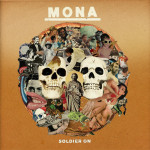
Connect to Mona on
Facebook, Twitter, Instagram
Discover new music on Atwood Magazine
? © 2018

